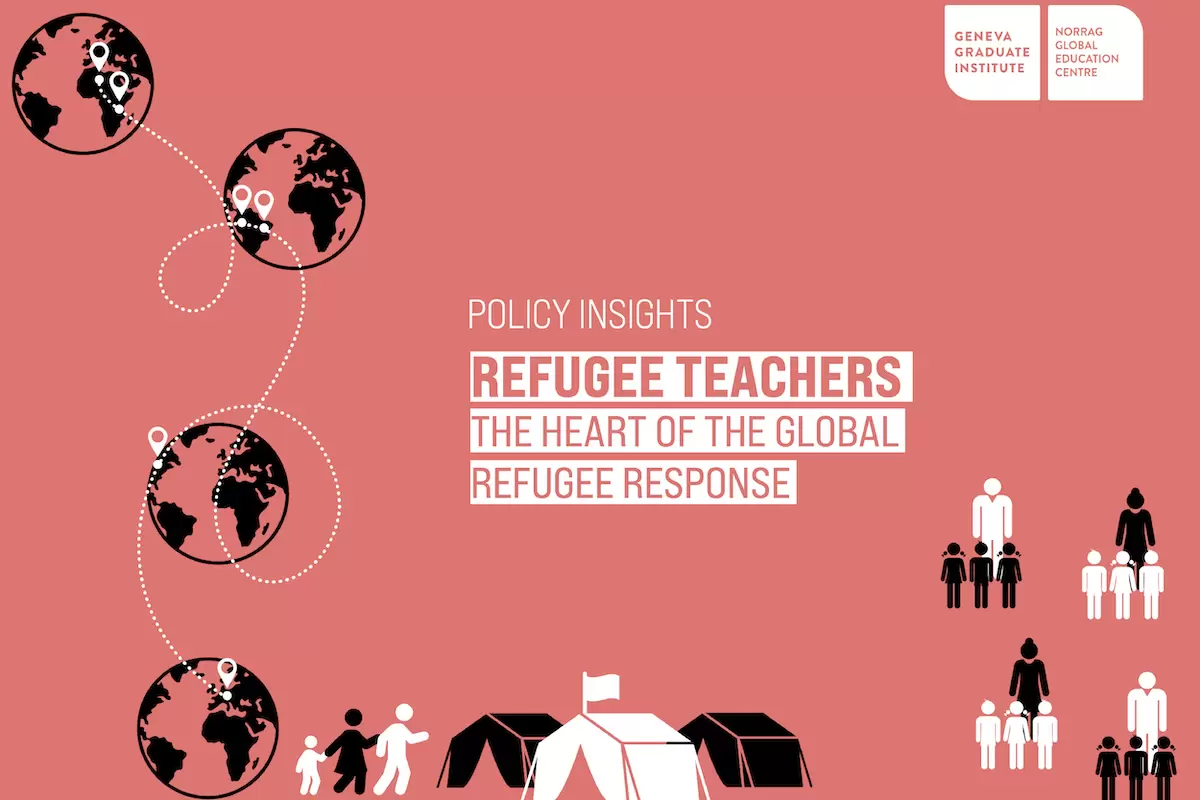In complex crisis contexts, such as refugee camps, teachers play a central role in responding to the uncountable challenges and needs of refugees, particularly children.
However, while education has received increased attention in global refugee policy and programming, the work and needs of refugee teachers and teachers of refugees have often been overlooked. In looking towards the Global Refugee Forum in 2023, Chris Henderson noticed that at the previous forum in 2019, of 240 refugee education-focused pledges by governments, donors, and international agencies, only six were teacher-focused.
In response, Chris initiated and curated NORRAG’s third Policy Insights publication titled “Refugee Teachers: The Heart of the Global Refugee Response.” Working as NORRAG’s Education in Emergencies Specialist, Chris corralled 48 authors (over 50 percent of whom are from the Global South) to compile and edit 28 evidence-based articles from 15 contexts on refugee teachers' voices, work conditions and wellbeing, and teacher professional development. The publication also includes work by Teachers College professor Mary Mendenhall and alumni, including Elisheva Cohen, Daniel Shephard, Anne Smiley, Jonathan Kwok, and Danielle Falk.
Chris hopes this publication inspires debate among key stakeholders to increase funding and support for refugee teachers, and, in light of the global teacher shortage, to push for a policy of refugee teacher inclusion in national education systems alongside refugee learners.
“Appallingly low and irregular pay, as well as a lack of funding and coordination for continuous professional development, inhibit teachers’ acquisition of the pedagogical knowledge and skills they so desperately desire and need. No amount of moral purpose can sustain a person’s motivation to teach when the incentives to do so are so low. Thus, as we are in the midst of a chronic global teacher shortage, we need to take responsibility for our own shortage of care for teachers.”
Check the latest volume of JEiE
Beyond championing teachers' voice and well-being in refugee contexts, Chris has also published research based on Indonesian teachers’ work in the latest edition of the Journal of Education in Emergencies: Bangkit Semangat--Raise the Spirits: Teachers Vulnerability, Resilience, and Voice in Postdisaster Indonesia.
Following Chris' involvement in the United Nations Transforming Education Summit, where improved teacher social dialogue with governments and humanitarian agencies was a key recommendation, Chris revisited ethnographic data from his 2016 research in Yogyakarta, Indonesia, where he investigated teachers' conceptualizations of their roles and responsibilities following the 2006 Yogyakarta earthquake, which claimed over 5000 lives.
Based on Chris' findings, he argues that the requisite structures are not yet in place at the global level to include and act on teachers' voices. Yet, as this study conveys, teachers often have their own culturally grounded systems and coping strategies to guide their work and well-being in the post-disaster context. As such, Chris concludes that:
“if humanitarian actors observed intently and listened closely to subaltern perspectives, it might become clear to them that global recommendations can be realized in local and culturally unique ways” (p. 175).
To learn more about Chris’ research and other publications in the latest JEIE, register here for a webinar on January 25th at 9am EST.
Follow Chris's work on social media
Chris is a fourth-year doctoral candidate currently undertaking dissertation fieldwork on Rohingya refugee teacher motivation in Cox's Bazar, Bangladesh. He is working with Prof. Mary Mendenhall and Garnett Russell. Chris has significant experience working alongside international agencies focusing on teachers' professional development and well-being. Keep up to date with his work on X: @ChrisGlobalEd. Congratulations on these fantastic publications, Chris!
